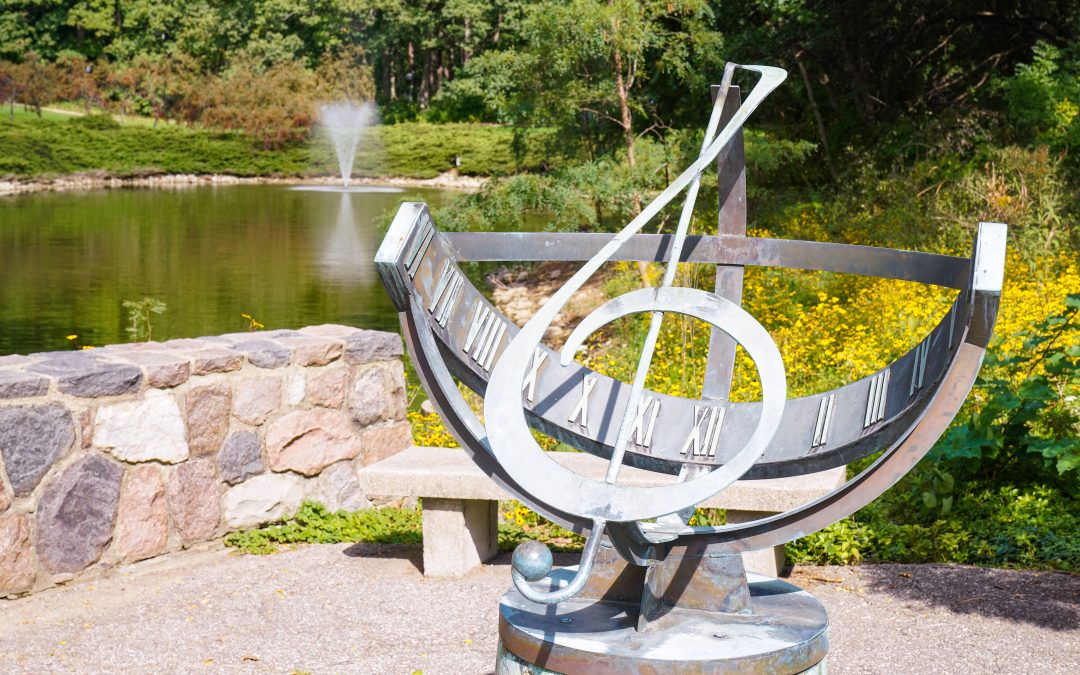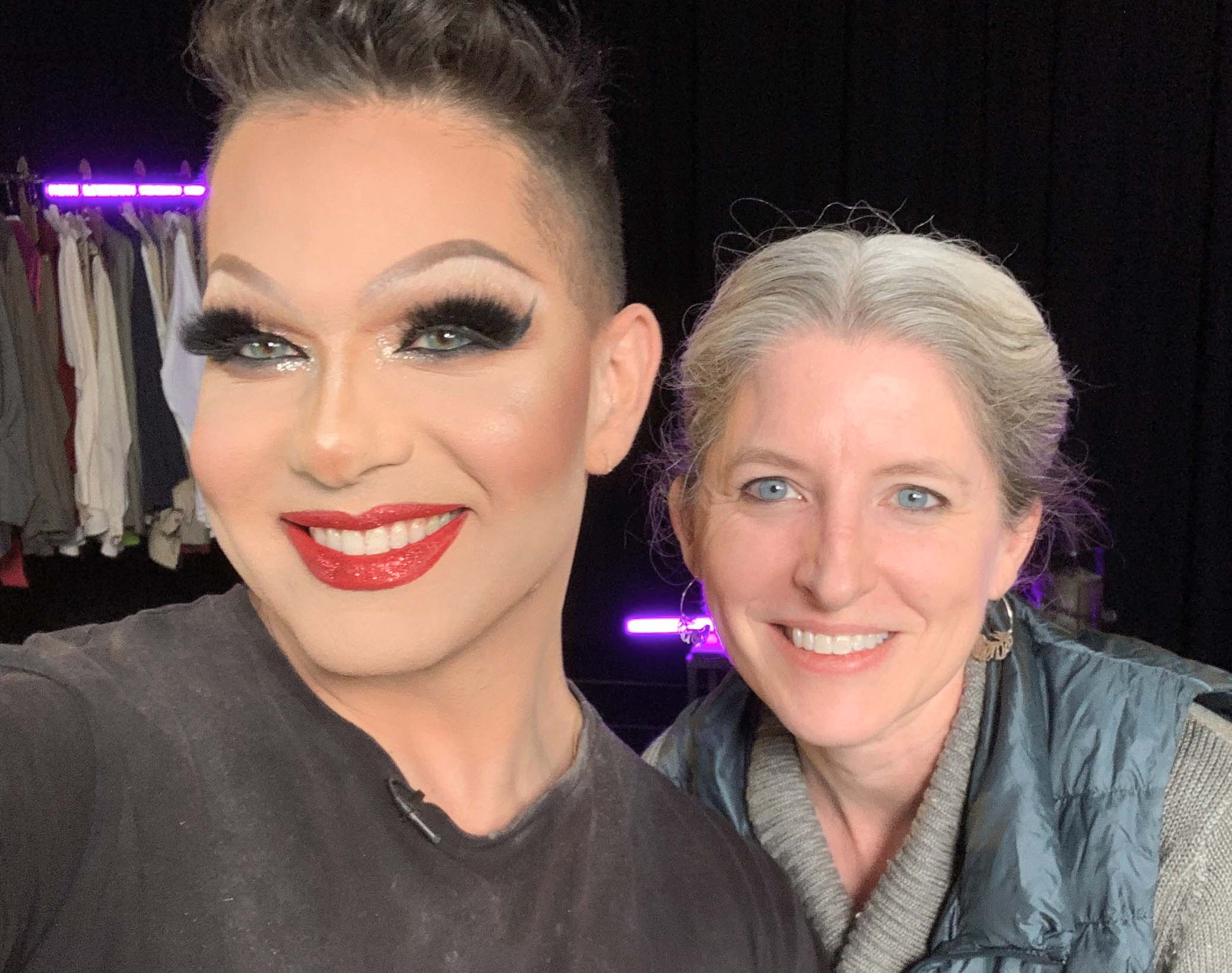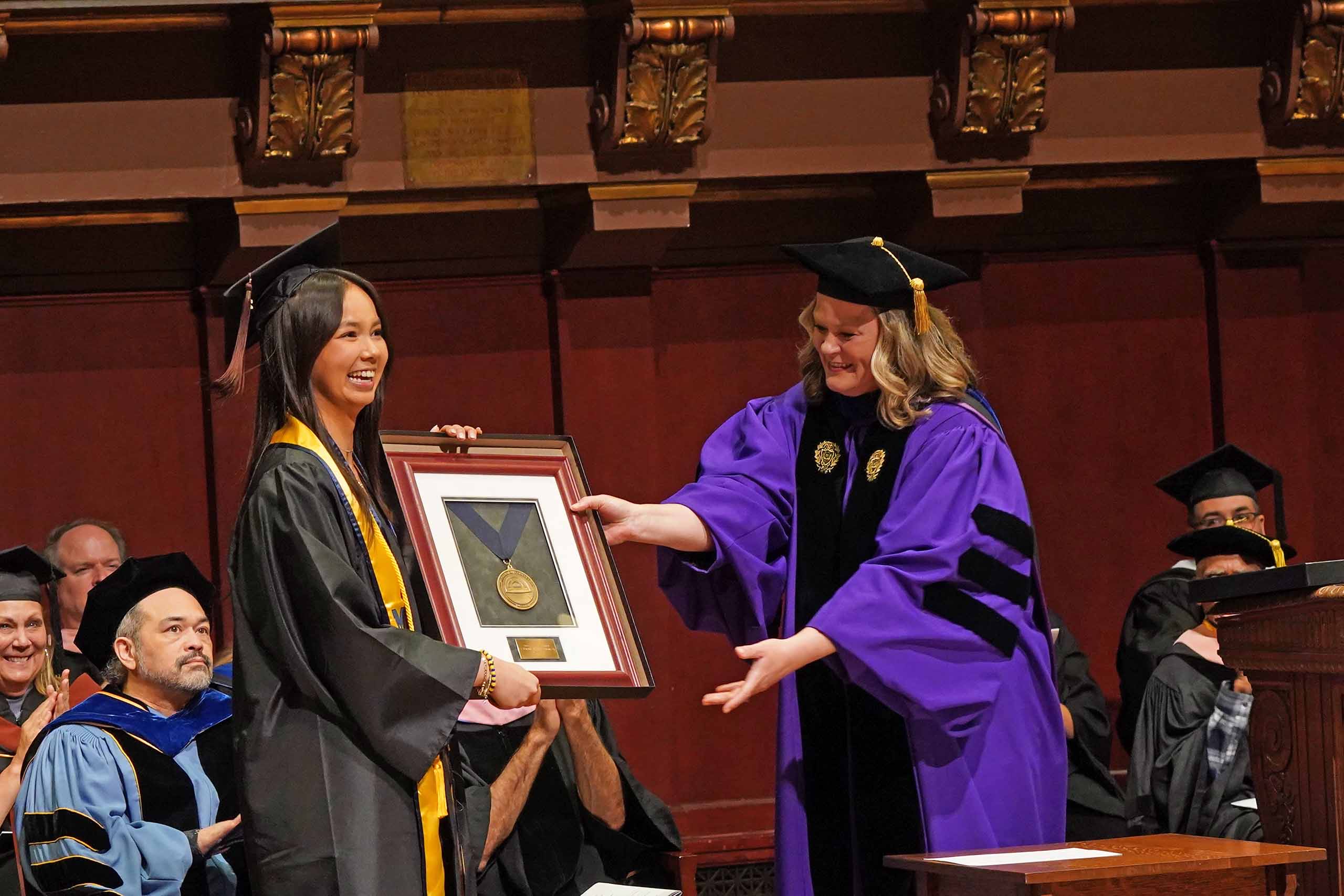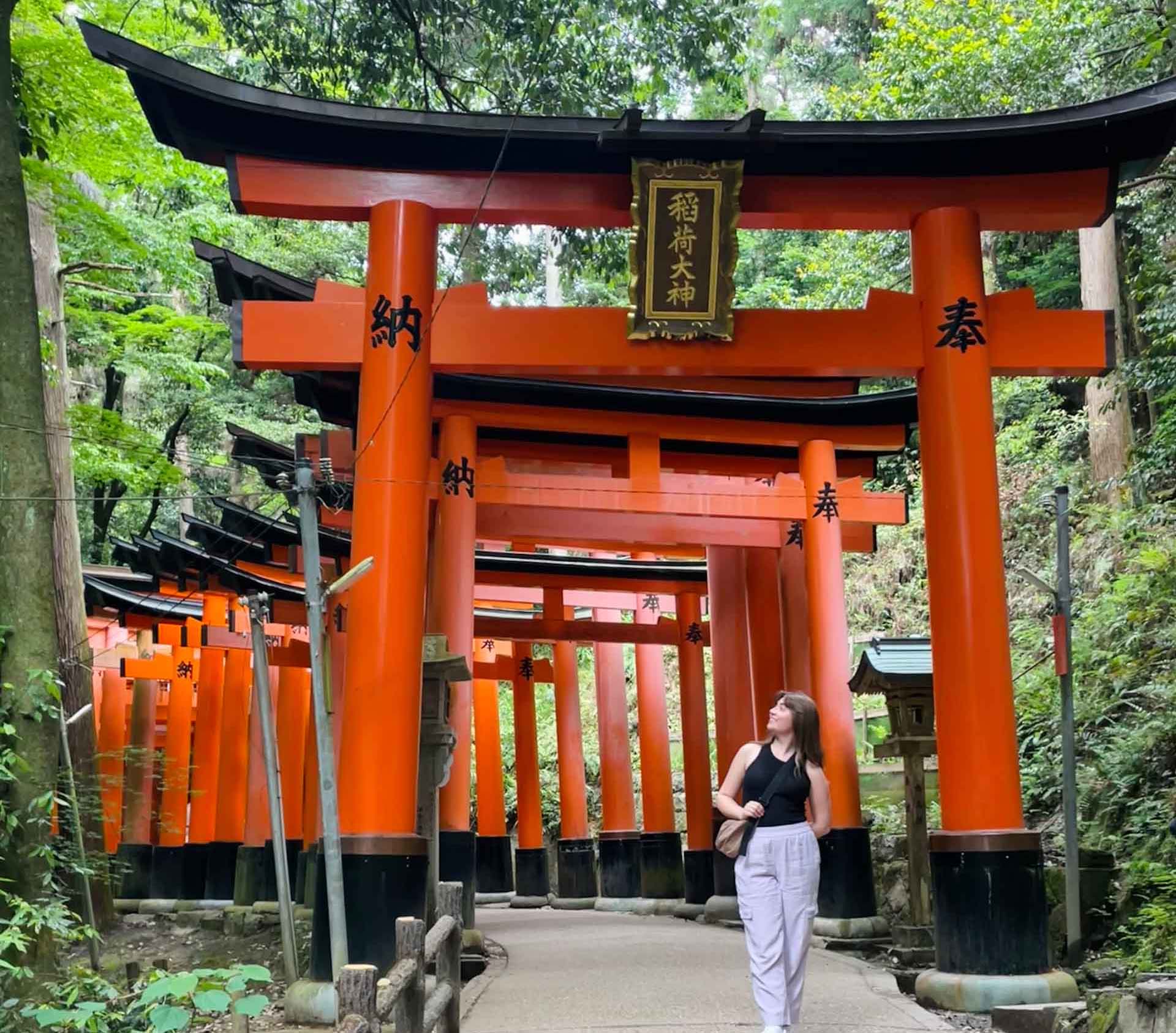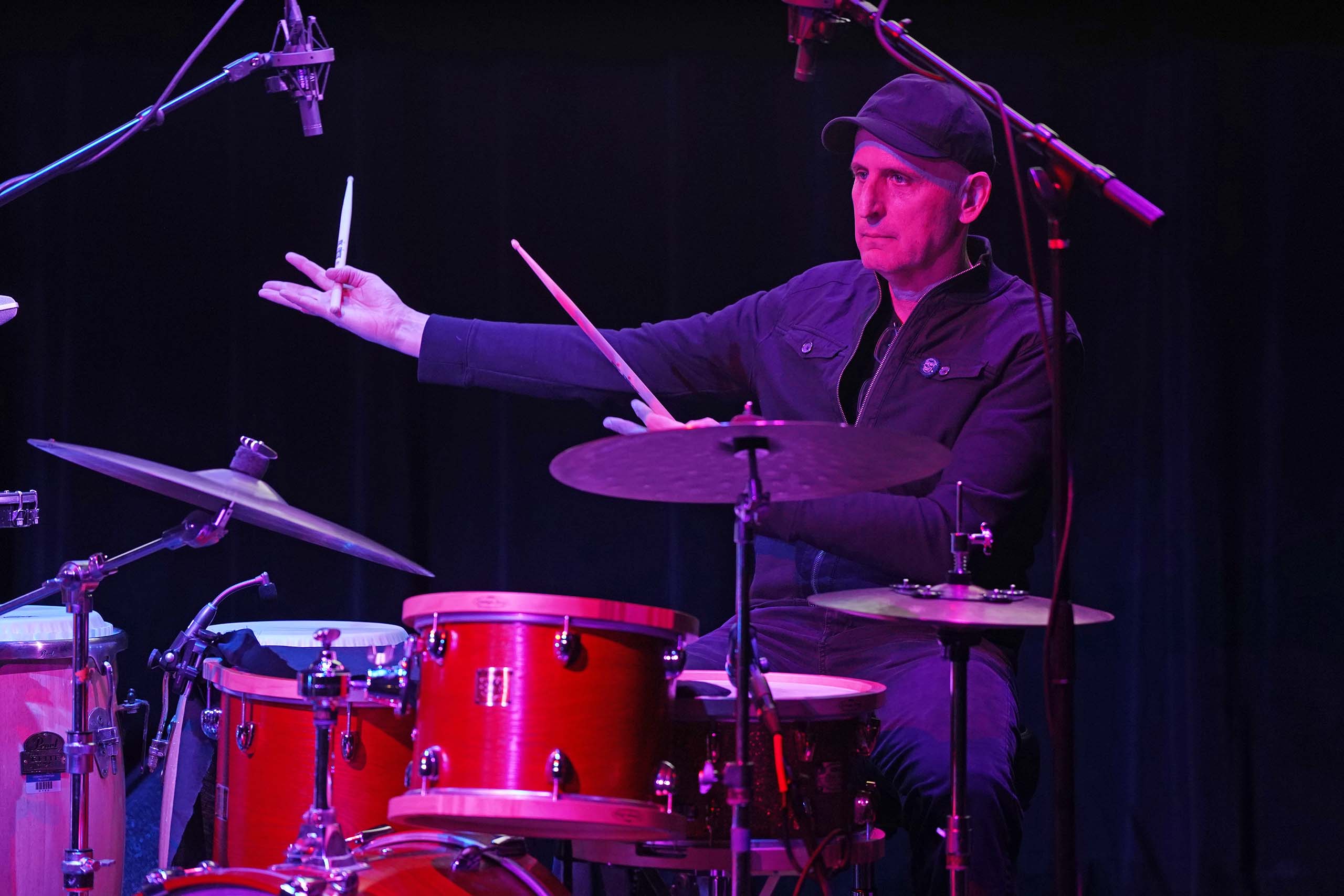Michigan Muse Winter 2025 > View from the Pond
View from the Pond
Pasek and Paul Achieve EGOT Status in Record Time
In February 2017, musical theatre alumni Benj Pasek and Justin Paul (both of whom graduated in 2006) took the stage of the Dolby Theatre in Los Angeles to accept the Academy Award for Best Original Song for “City of Stars” from the motion picture La La Land. Later that year, the duo took home Tony Awards for Best Musical and Best Original Score for their Broadway smash hit Dear Evan Hansen, and in 2018, Dear Evan Hansen secured the pair the Grammy Award for Best Musical Theater Album. Seven years and seven months later, during the Creative Arts Emmy Awards show on September 8, 2024, Pasek and Paul were awarded the Emmy for Outstanding Original Music and Lyrics (along with co-writers Marc Shaiman and Scott Wittman) for their song “Which of the Pickwick Triplets Did It?” from the Hulu series Only Murders in the Building.
With the Emmy win, Pasek and Paul became the 20th and 21st individuals to achieve EGOT status (winning at least one Emmy, Grammy, Oscar, and Tony), set the record for fastest climb to the EGOT club, are the second team to achieve an EGOT (joining Andrew Lloyd Webber and Tim Rice), and became the second- and third-youngest EGOT winners ever (the youngest is songwriter Robert Lopez).

The Emmy Awards in September kicked off the 2024–25 awards season, and in addition to Pasek and Paul’s notable win, Laura Karpman (BM ’80, composition) earned a nomination for Outstanding Music Composition for a Documentary Series or Special (Original Dramatic Score) for Rock Hudson: All That Heaven Allowed. Numerous SMTD alumni were part of the casts or creative teams for nominated series, including The Gilded Age and Only Murders in the Building.
The 2023–24 awards season concluded with the Tony Awards in June, and SMTD was well represented among the winners and nominees. Matthew Rego (BFA ’92, musical theatre) served as executive producer for The Outsiders, which earned 12 nominations and four wins, including Best New Musical; Tamlyn Brooke Shusterman (BFA ’94, musical theatre) was a co-producer for The Outsiders, and several alumni were featured in the cast. Thomas Laub (BFA ’19, musical theatre), Alyah Chanelle Scott (BFA ’19, musical theatre), Mike Mosallam (BFA ’01, musical theatre), and Michelle Palm Martin (BTA ’21) were all on the Runyonland Productions’ producing team for Appropriate, which won Best Revival of a Play. Myriad more alumni were members of the award-winning casts and creative teams of Tony winners Stereophonic (Best Play) and Merrily We Roll Along (Best Revival of a Musical). Celia Keenan-Bolger (BFA ’00, musical theatre) was nominated for Best Performance by an Actress in a Featured Role in a Play for portraying Martha in Mother Play. Professor Jungah Han (theatre & drama) served as associate scenic designer for Lempicka, which was nominated for Best Scenic Design.
New SMTD Open Online Course Focuses on Diverse Makeup & Hair Techniques
Massive open online courses, or MOOCs, make academic content available and accessible to learners around the world. At U-M, the Center for Academic Innovation partners with the university’s schools and colleges to help identify and develop courses that extend the reach of faculty members’ expertise. While not eligible for credit, this diverse and extensive portfolio of courses covers a wide range of subjects and disciplines that support life-long learning for all.
A new addition to SMTD’s MOOC offerings, “Equitable Stage Makeup and Hair,” was developed by Sarah M. Oliver, assistant professor of theatre & drama, and Christianne Myers, the Claribel Baird Halstead Collegiate Professor of Theatre & Drama, for those seeking to understand diverse makeup and hair techniques in the performing arts. This open online course provides an inclusive, character-driven applied approach to stage makeup and hair for performers of all races and ethnicities, ensuring all learners can work professionally in an inclusive, diverse performing community. It focuses on the application of basic stage makeup for all skin tones and wig preparation for a variety of hair textures, with additional modules covering trauma makeup, special effects makeup, and drag makeup.
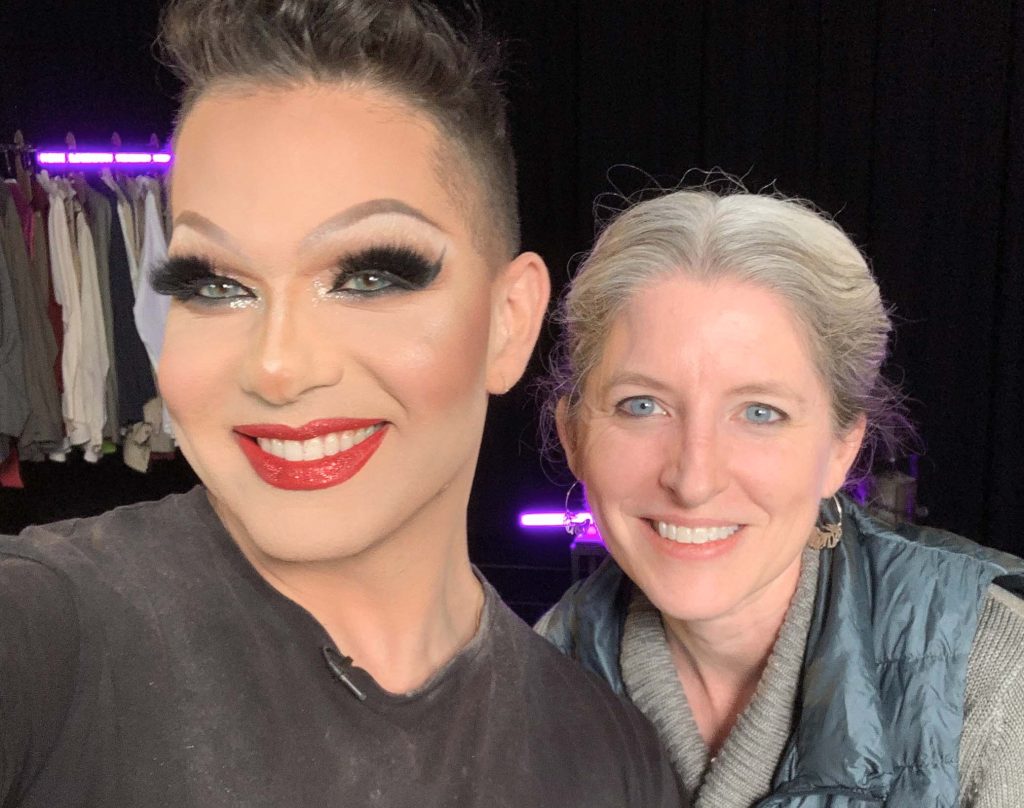
“I have talked to so many students and so many people in my industry who have no access to training like this, and they are hungry for this kind of in-depth training,” shared Oliver. “It is exciting to be able to point to this course and get this level of diversified training that touches on so many skin tones, so many techniques, and so many needs.”
Oliver began working on the idea for this course in 2021 and was joined in the effort by Myers. They partnered with more than two dozen SMTD alumni, students, and faculty who were eager to help create the course, which was supported by funding from U-M’s Center for Research on Learning and Teaching (CRLT) Faculty Development Fund and a grant from the U-M Arts Initiative.
MOOCs previously developed by SMTD faculty include “Alexander Technique: Balanced Posture for Ease and Comfort,” “Black Performance as Social Protest,” and a series of courses focused on the piano sonata. Learn more at online.umich.edu.
Celebrating the Class of 2024
“Your adaptability and readiness to face the unknown will be your greatest asset on this journey,” advised guest speaker George Shirley, the Joseph Edgar Maddy Distinguished University Emeritus Professor of Voice, in his remarks to SMTD’s class of 2024 at the spring commencement ceremony. This message was particularly resonant for a class of students who, four years ago, lost their high school graduation ceremonies to COVID-19 shutdowns. These students went on to demonstrate the determination and resilience that would carry them to this celebratory day.
In her address, student speaker Grace Lutenske (BFA, theatre: acting) reflected on the beginning of the college experience for the class of ’24 in the midst of the pandemic: “Especially after having to begin this journey apart, I’m even more thankful for the ways we’ve been able to come together, having changed so much in all the best and hardest ways. Of course, this school has taught me technique and focus and given me new tools, but above all, it’s invited me to trust myself and find gratitude for each moment.”
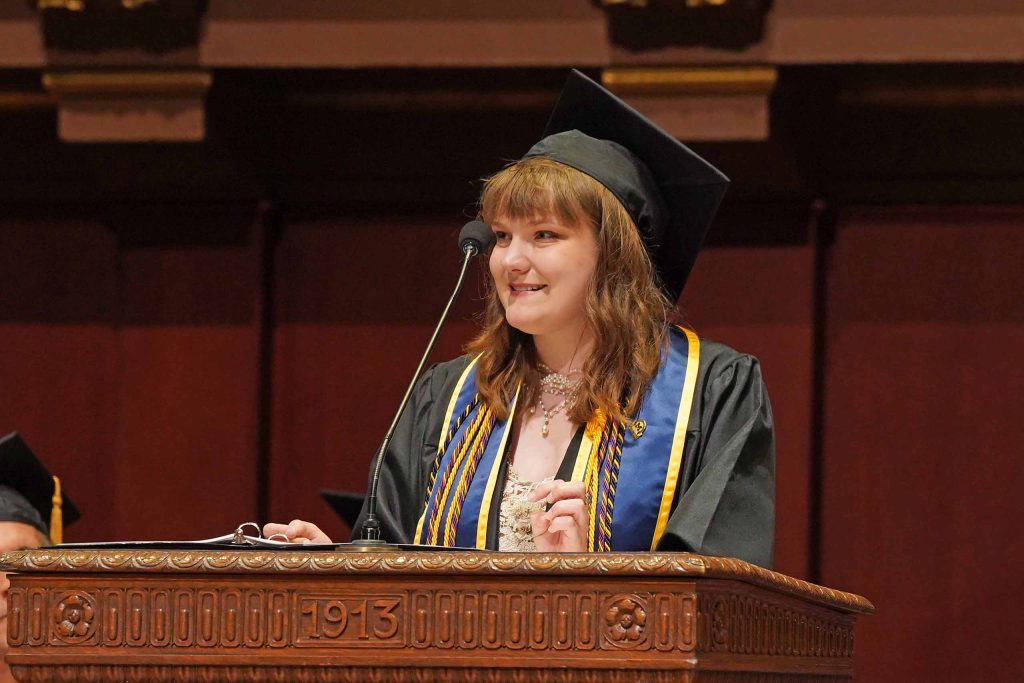
Each SMTD commencement features a remarkable array of performances and presentations from student award winners. This year’s winners shared their exceptional talents across a range of disciplines and musical styles. The winners were:
Matthew Eggers, BFA in theatre design & production (costume design) / Earl V. Moore Award, Theatre
Alexandra Humphreys, BFA in musical theatre / Albert A. Stanley Medal
Mattie Levy, MA in composition; MM in oboe performance / Willis Patterson Diversity Award
Kate Laila Louissaint, BFA in musical theatre / Earl V. Moore Award, Musical Theatre
Mia Rubenstein, BFA in dance / Earl V. Moore Award, Dance
Juliet Schlefer, MM in vocal performance / Earl V. Moore Award, Music
Angie Zhang, MM in pianoforte; DMA in piano performance / Earl V. Moore Award, Music
Humphreys, winner of the Stanley Medal, urged her classmates to draw upon their shared experiences at SMTD as they prepare to embark on new journeys: “Let us go into the world hand in hand, never losing sight of the wonder, curiosity, and resilience that defined these four years.”
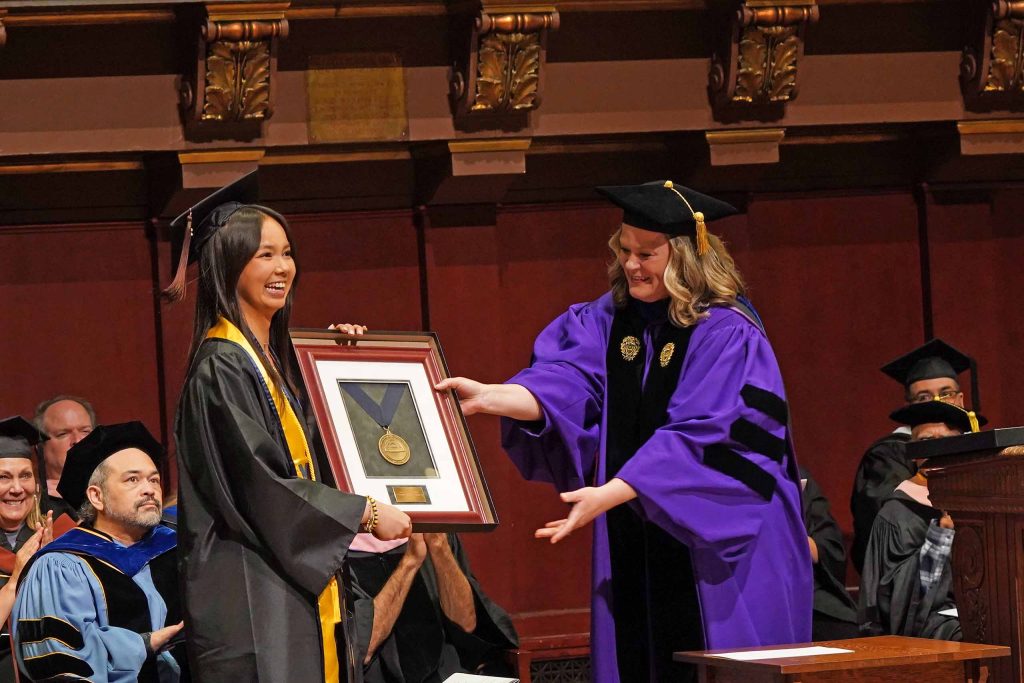
The unique experience of the class of ’24 has shaped students into strong, optimistic, and brave artists and scholars, and Shirley encouraged them to use their talents to make an impact: “I adjure each of you, in following your muse, to do everything in your power to ensure that future generations of students are blessed with a thorough education in those areas of the humanities in which you have earned your degrees, including the performing arts, the language of the soul of humankind.”
To see videos of several speeches and performances from commencement, check out the SMTD Commencement 2024 playlist at youtube.com/@UMICHSMTD.
Faculty-Led Trips Abroad Take Students All Over the World
During the spring and summer of 2024, several SMTD students pursued opportunities to further their education abroad on faculty-led trips. Students performed, attended workshops and intensives, and participated in festivals and competitions around the globe, traveling to Europe, Asia, and South America.
In April, Professors antonio c. cuyler and Jonathan Kuuskoski, both of the Department of Entrepreneurship & Leadership, traveled with students from cuyler’s “Ethics in Arts Leadership” course to Vienna to present at and participate in the Critiques of Power in the Arts conference and Global Classroom experience.
In May, SMTD theatre design & production students traveled to Tokyo and Kyoto in Japan with Professor Sarah M. Oliver, having taken Oliver’s course “Fashion and Costume: Global Adornment & Attire.” The students visited a fashion college, museums, and a weaving factory, and they attended a parade highlighting historical clothing. Also in May, nineteen students from the Department of Dance, led by Professor Amy Chavasse, traveled to Seville, Spain, for a two-week dance intensive with Marcat Dance at the Centro de Creación Coreográfica de Andalucía. That same month, students in the Music from Auschwitz Chamber Orchestra traveled with Professors Patricia Hall (music theory) and Amanda Majeski (voice & opera) to Austria and Poland. They performed recitals of music uncovered by Hall in the archives of the Auschwitz-Birkenau State Museum and immersed themselves both in the musical culture of those countries and in the painful legacy of the Holocaust.
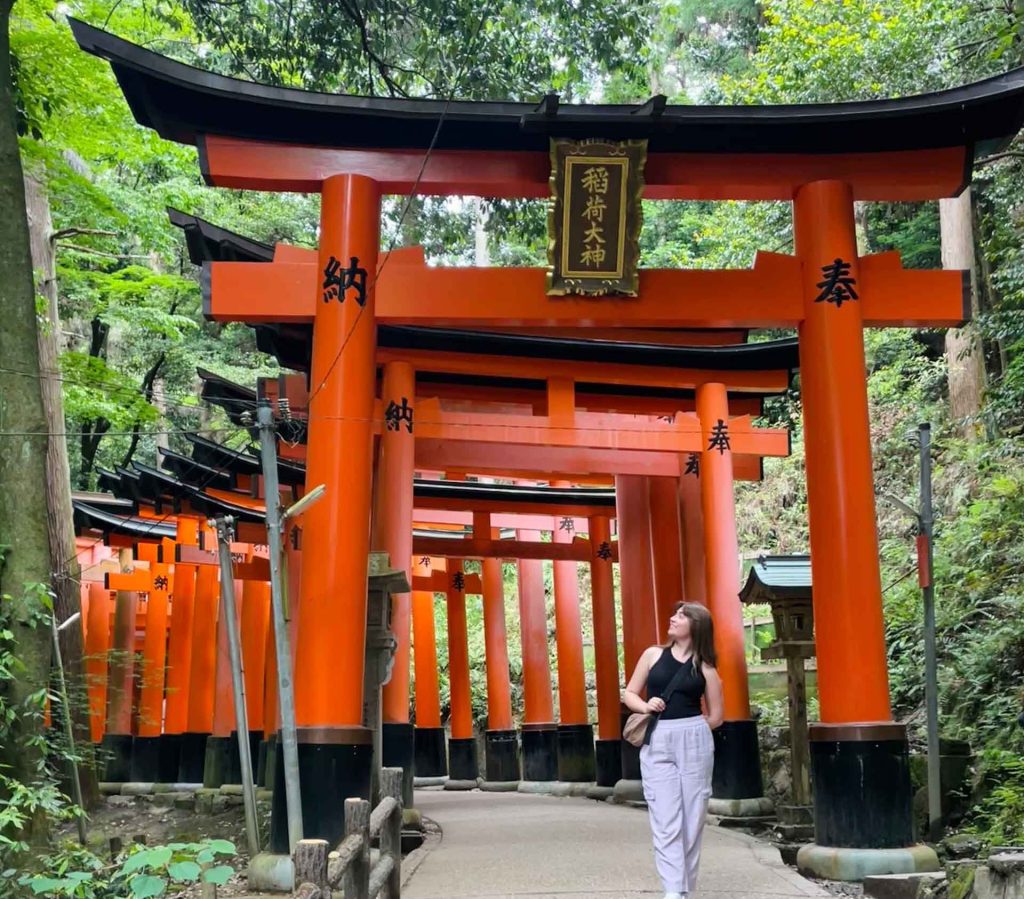
In June, a group of students pursuing degrees as part of SMTD’s master of music education summer program traveled with Professor Marie McCarthy to Ireland, where they participated in a multi-day workshop at the Irish World Academy of Music and Dance, University of Limerick. They learned about traditional Irish instrumental music, song, and dance through lectures, lessons, and live performances. Also in June, Professors Tzveta Kassabova and Antonio Disla (theatre & drama) traveled with students to attend the Sibiu International Theater Festival in Romania, where they performed the dance theatre work Prometheus. Beginnings., devised by Kassabova and the cast. A Chamber Choir tour also took place in June, with Professor Eugene Rogers (choral conducting) and students traveling first to Washington, DC, to perform Elijah Reimagined, a production of Mendelssohn’s Elijah, with the Children’s Chorus of Washington and the Washington Chorus Orchestra, and then to Argentina to perform a solo recital at the Teatro El Círculo in Rosario and two sold-out performances of Elijah Reimagined at the Centro Cultural Kirchner in Buenos Aires.
Professor Christopher Harding (piano) traveled with students in July to Italy for the Sicily International Piano Festival & Competition. Later that month, Professor Stephen Rush (performing arts technology) led students on a month-long trip to Mysore, India – the fourteenth trip of its kind that he has led – where they immersed themselves in the culture and studied Carnatic music, a form of classical music originating in South India. In August, Logan Skelton, Arthur F. Thurnau Professor of Music (piano), journeyed with students to Spain for the Gijón International Piano Festival.
Center for World Performance Studies Joins SMTD: An Interview with Michael Gould
By Molly Paberzs, Academic Program Specialist, CWPS
The Center for World Performance Studies (CWPS) was established in 2000 to serve the needs of faculty and students with an interest in performance studies through a global lens. Originally an initiative of the International Institute, CWPS evolved to offer a multidisciplinary space for artists, performers, scholars, and the community for intellectual interactions and public performances. This year marks another shift in administrative homes as CWPS moves from LSA’s Residential College to the School of Music, Theatre & Dance.

As part of SMTD, the center will continue to focus on performance as a focus of research and as a means of public engagement, centering on underrepresented, non-Western, and diasporic voices, bodies, and acts. CWPS is situated at an exciting intersection of scholarly, creative, community, and critical practices. In this interview, Michael Gould – director of CWPS and professor of music in the Department of Winds & Percussion and in the Residential College – discusses the importance of CWPS and why its move to SMTD was a natural transition.
What programs does CWPS offer?
The Center for World Performance Studies offers artist and scholar residencies, speaker series, symposia, classroom teaching, and co-sponsorships with centers, departments, and units throughout the university. In addition, CWPS houses a graduate certificate in world performance studies with graduate fellows not only from SMTD but from a multitude of fields from other colleges and schools around campus. Finally, CWPS offers a faculty fellows program that funds summer research for faculty whose work focuses on performance studies and fits within CWPS’s mission.
How did you get involved with CWPS, and how can others who are interested get involved?
My initial interest in CWPS began about 20-plus years ago at the inception of the center. I went to several events and gatherings, and it was an exciting time. I am passionate about all areas of performance, which includes the scholarly pursuit of performance studies itself. I was asked in 2017 by Jon Wells, the former director of the Residential College (where CWPS was housed), if I would be interested in being director. I jumped at the opportunity. For those who are interested in CWPS, please visit our website and drop us a message. We can find what suits you best, from coming to our residencies and concerts to becoming a faculty affiliate, graduate fellow, or CWPS super fan.
Why is this work so important to you?
There are several reasons! First, CWPS is able to bring in artists and scholars from around the world who might not be showcased by the University Musical Society or SMTD itself. I also love to watch the transformation of graduate students leaving the country to do their research as part of the graduate certificate we offer. When they return, in most cases they have a new view on how they situate themselves and others around them…including how they view their own work. It is very gratifying to be a part of this process. We also have opportunities to fund faculty research, which helps bring faculty from across the university into a group of fellows that shines a light on their research for U-M students, faculty, and staff, and for outlying communities. Finally, we do important community outreach that brings artists and scholars to students outside of U-M. When all of these activities are in process throughout the academic year, it is a very rich experience for everyone involved.
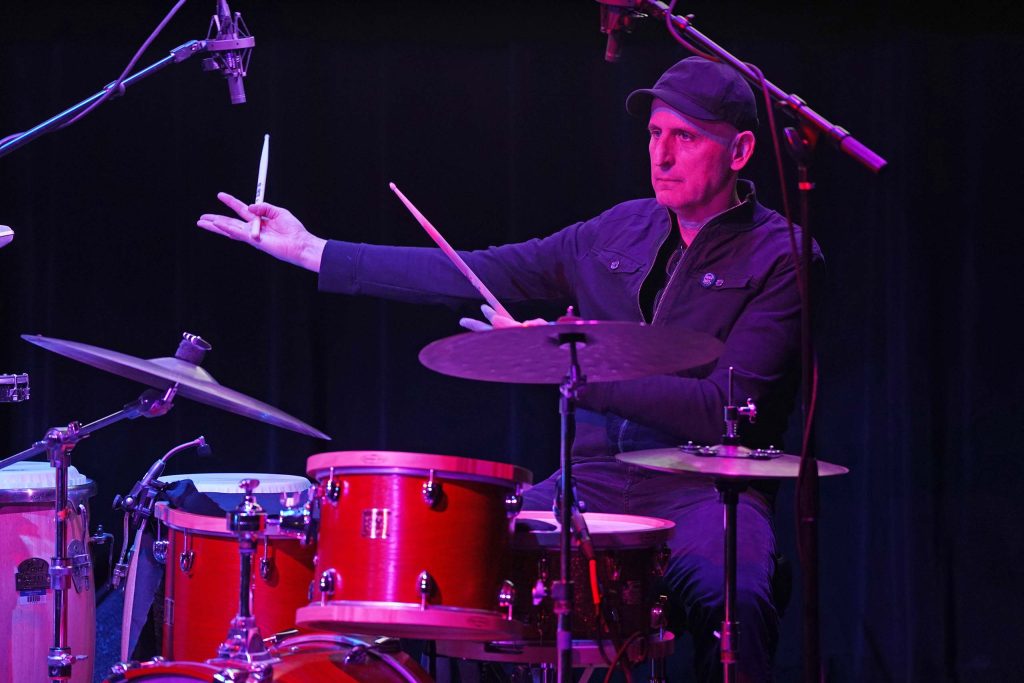
Why the move to SMTD?
Our home at the Residential College was very supportive and a great space for us to grow. We found over time, though that a majority of our graduate students and faculty were part of SMTD. All of the scholars/performers we brought in also had direct ties to SMTD. It was just a natural process to become more integrated into SMTD’s programming and resources, and to make CWPS’s programming more available to SMTD students and faculty.
What’s next for CWPS?
We will continue to offer all of what we do to the entire campus and outlying communities but with a closer integration into SMTD. We hope to continue our work with other centers, institutes, and departments around campus. One area we would like to foster is the undergraduate minor in performance studies. If we were able to give more undergraduates opportunities to go abroad and conduct research, this would be quite transformational for their lives.

